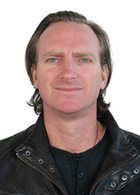Police have detained 17 people on suspicion of making and selling counterfeit drugs and vaccines.
The suspects were arrested during raids on four bases in the Guangxi Zhuang autonomous region and Hunan, Anhui, and Henan provinces, the Ministry of Public Security said on Saturday.
About 16,000 bottles of fake medicine were seized, including copies of albumin, immune globulin and the rabies vaccine, as well as equipment to make counterfeit drugs.
The drugs seized had a total market value of more than 20 million yuan ($3.28 million), the ministry said.
Police said the suspects had sold 10,800 doses of the fake rabies vaccine to hospitals in Shandong province since 2009. The vaccine was sold at 1 yuan per dose - patients had to pay 26 yuan.
The ministry did not say which hospitals had bought the vaccine, nor did it say whether patients had been harmed by using the fake medicine.
It is unclear how the suspects managed to sell fake products as vaccine management is strict.
Police are cooperating with the China Food and Drug Administration to trace and recall fake medicines that were sold, the ministry said.
According to Saturday's statement, police found that since May 2012, two suspects, identified as Liu and Zhou from Changsha, capital of Hunan, had bought empty drug bottles and packaging materials to use for the fake medicines.
The suspects allegedly cleaned the bottles with tap water, filled them with dyed distilled water and resold them under a brand of a Shanghai pharmaceuticals company.
Police said Liu and Zhou sold the fake human serum albumin to another suspect surnamed Zhao for 8 yuan a bottle, and they were eventually resold at some clinics for 400 to 500 yuan a bottle.
The suspects managed to sell at least 8,000 bottles of albumin before they were caught, police said.
Albumin, distilled from healthy human blood, is mainly used for the treatment of patients who have serious injuries and have lost a lot of blood. Using contaminated albumin can lead to septicemia or even death, the China Food and Drug Administration said.
The supply of albumin does not meet the market demand, a situation that police say has fueled a black market.
The investigation started in November 2012 when a patient in Liuzhou, Guangxi, had an adverse reaction to fake albumin, the ministry said.
Mao Zhenbin, director of the China Food and Drug Administration's inspection bureau, said at a news conference on Oct 16 that many fake medicines are sold on the Internet, making it difficult for authorities to oversee them.
The administration also found many small clinics bought fake medicine through illegal channels and sold them to patients, he said.
Police have been cracking down on fake drug production and sales for several years.
During a campaign last year, police caught more than 1,900 suspects in 190 cities who allegedly made and sold 1.16 billion yuan in fake drugs, the Ministry of Public Security said.
Questions:
1. How many people have been detained on suspicion of making fake drugs?
2. What is the market value of the seized drugs?
3. What fake drug were the suspects Liu and Zhou accused of selling?
Answers:
1. 17.
2. 20 million yuan.
3. Albimum.
(中国日报网英语点津 Helen 编辑)

About the broadcaster:

Lance Crayon is a videographer and editor with China Daily. Since living in Beijing he has worked for China Radio International (CRI) and Global Times. Before moving to China he worked in the film industry in Los Angeles as a talent agent and producer. He has a B.A. in English from the University of Texas at Arlington.
